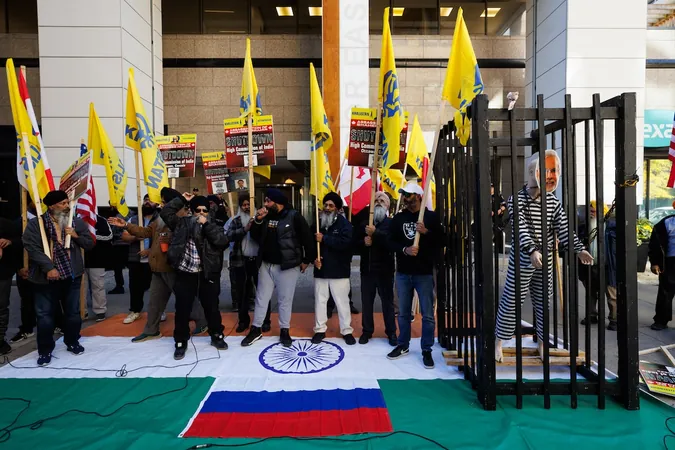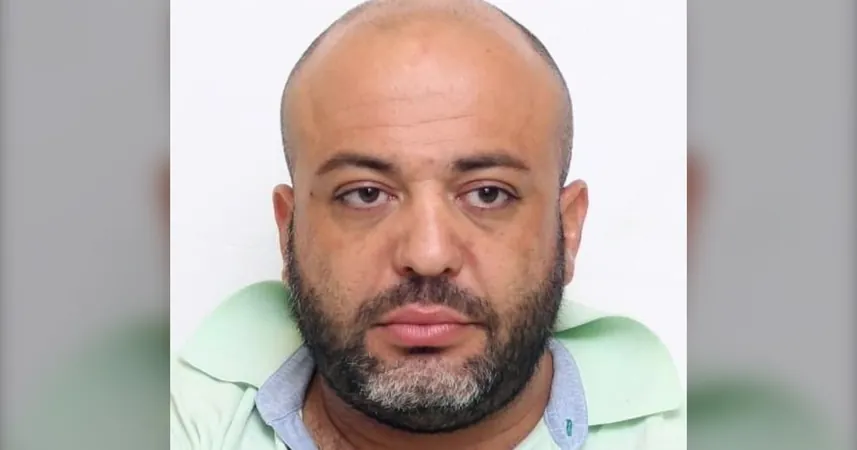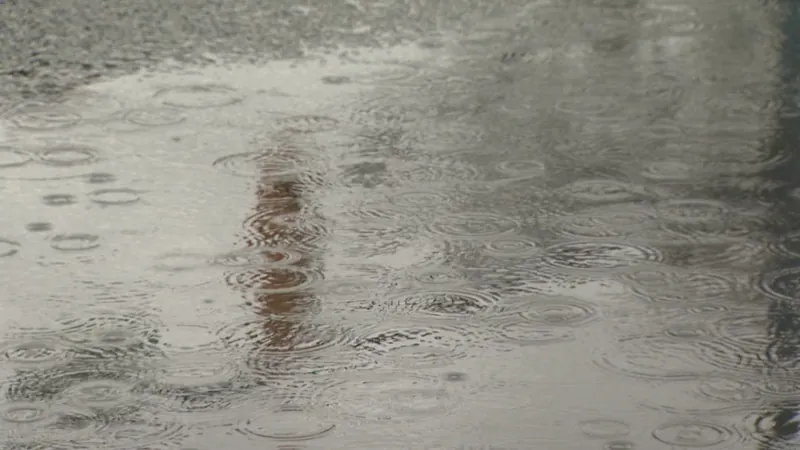
Diplomatic Tensions Rise as Indian Consular Events in Ontario Are Cancelled Amid Community Unrest
2024-11-08
Author: Noah
In a dramatic turn of events, Indian diplomatic officials have postponed several consular gatherings in Ontario, citing escalating tensions linked to recent protests outside religious venues in the Greater Toronto Area (GTA). This decision follows a plea from local law enforcement that cautioned against holding these events in close proximity to temples, which have become hotspots for conflict between Sikh separatist groups and supporters of the Indian government.
The Indian consulate in Toronto announced via social media that it would be cancelling planned activities this month due to Canadian security agencies expressing their inability to guarantee even minimal security for attendees. This revelation raises alarming questions about the safety of diplomatic missions abroad and highlights the delicate balance between cultural outreach and community dynamics.
Peel Regional Police Chief Nishan Duraiappah underscored the gravity of the situation in a recent letter to Kapidhwaja Pratap Singh, the acting consul-general of India in Toronto. He pointed out that previous events held at religious sites had drawn significant unrest, specifically referencing a chaotic incident at Brampton's Hindu Sabha temple, where violence broke out as Indian officials conducted a consular camp. Disturbing footage circulated online depicted clashes between Sikh protestors and government supporters, leading to several arrests for offenses including assault with a weapon and mischief.
Following the turmoil in Brampton, pro-government demonstrators gathered at a Sikh gurdwara in Mississauga, where tensions continued to brew. The situation escalated further on Monday evening when police deployed a riot squad to disperse protesters, following reports of violence and the use of harmful substances during the demonstrations.
The Indian Ministry of External Affairs previously described these consular gatherings, primarily intended to assist expatriates with pension-related paperwork, as vital outreach efforts. However, Sikh activists argue that these sessions serve as a guise for spying operations aimed at gathering intelligence on the diaspora’s movements and activities. This has led to a cycle of protest and counter-protest within Canada’s vibrant Sikh community, deeply affecting diplomatic relations.
Brampton Mayor Patrick Brown has voiced intentions to introduce a bylaw prohibiting protests on the premises of places of worship, reflecting the escalating concern for safety and community cohesion.
In light of this unrest, the Indian consulate has cancelled three upcoming consular camps—two scheduled for the coming weekend in Brampton and another in Cambridge on November 24—while leaving some events intact. This has raised eyebrows regarding the future of similar initiatives aimed at fostering diplomatic relations in a region already sensitive to international dynamics.
The backdrop of this controversy is underscored by larger geopolitical tensions, particularly following Prime Minister Justin Trudeau’s assertions of the Indian government’s involvement in nefarious activities against Sikh separatists within Canadian borders. The strain between Canada and India reached a zenith last month with mutual diplomatic expulsions amidst allegations of violent acts carried out at the behest of New Delhi.
As both countries navigate these choppy waters, the question remains: how will this discord impact the broader South Asian community in Canada, a vibrant mélange of cultures and political currents? The coming months will be crucial in determining the trajectory of these diplomatic relations and the safety of community members involved.









 Brasil (PT)
Brasil (PT)
 Canada (EN)
Canada (EN)
 Chile (ES)
Chile (ES)
 España (ES)
España (ES)
 France (FR)
France (FR)
 Hong Kong (EN)
Hong Kong (EN)
 Italia (IT)
Italia (IT)
 日本 (JA)
日本 (JA)
 Magyarország (HU)
Magyarország (HU)
 Norge (NO)
Norge (NO)
 Polska (PL)
Polska (PL)
 Schweiz (DE)
Schweiz (DE)
 Singapore (EN)
Singapore (EN)
 Sverige (SV)
Sverige (SV)
 Suomi (FI)
Suomi (FI)
 Türkiye (TR)
Türkiye (TR)